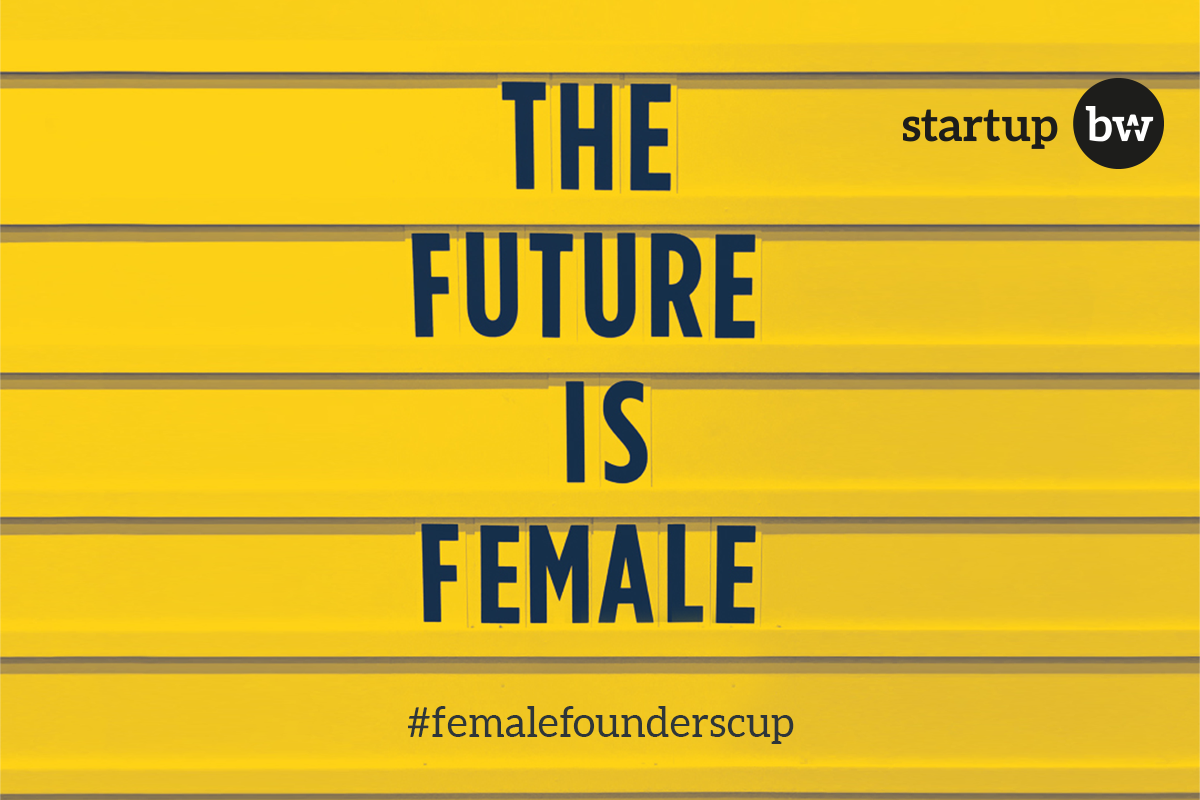
The FEMALE FOUNDERS CUP is going into the next round
The FEMALE FOUNDERS CUP is THE pitch event for women in Baden-Württemberg and offers ten female founders or start-up teams the chance to present their business idea in three minutes to a selected jury of experts and the general public.
Attention female founders!
Our partner Startup BW is looking for female founders, entrepreneurs and start-up teams with at least 50% female representation from all over Baden-Württemberg.
The participants of the finale will receive direct feedback from proven experts and can look forward to some benefits:
- Opportunity to present on the platform of Startup BW
- in-depth pitch and camera training
- Photo & video material of the pitch
- Prize money, sponsored by L-Bank
In addition to the prize money, the best team will also receive a ticket to the Start-up BW Elevator Pitch state finals!
Seven of the ten starting places will be awarded by online voting until February 17, 2022, and three additional places will be determined by subject matter experts.
Apply by February 17 or vote for your favorite business!
All further information, the conditions of participation and registration
Working Student (f/m/x) Pfizer Healthcare Hub Berlin
You want to get a taste of industry during your studies and gain experience in an international pharmaceutical company? Join our team! We are looking for a working student for our team in Berlin as soon as possible.
Your tasks:
- Collaboration in the Healthcare Hub Berlin team
- Research and analysis of current trends in the German healthcare sector, especially in the field of DVG/DiGA
- Collaboration on cross-divisional innovation projects and startup cooperations
- Collaboration on the communication concept as well as participation in the creation of corresponding materials
- Screening of relevant startups in the area of digital health – "offline" and at startup events and conferences
- Representation of Pfizer in the Berlin startup scene
- Support in the preparation and implementation of events in the field of digital health, startups and eHealth
Your profile:
- You are at an advanced stage of your studies with a business, economics or technical focus; preferably with a focus on health economics/health management, digitalization or innovation.
- You have proven experience and/or internships in the field of (digital) healthcare /eHealth and have an affinity for digital technologies as well as creativity methods
- You enjoy working in a team and also convince with an independent way of working
- Very good knowledge of the German and English language
Your working hours will be 20 hours/week during the lecture period. During the lecture-free period you can also work full time. The position is limited to 6 months.
We are looking forward to your application!
More information and online applicationPfizer Global Product Development is looking for a AI/Machine Learning-based technology platform
Pfizer’s Breakthrough Change Accelerator has launched a global Smart Clinical Signal Detector challenge! Pfizer is seeking an AI/ML enabled solution that can detect patterns or trends in historical data sets to generate hypotheses that support clinical decision-making.
Pfizer clinical teams have near real-time clinical and operational treatment-blinded, coded data access via multiple clinical data electronic systems. By taking in and mining data from these systems Pfizer Global Product Development wants to identify potential trends and patterns which could generate clinical hypotheses that drive earlier data-driven study decision making towards delivering much needed medicines and vaccines as efficiently as possible.
Are you ready to develop a solution for this challenge? These are the selection criteria:
- Experience and understanding of the challenge statement(s) and experience in healthcare and/or clinical trial data markets where this solution could be used
- Prior experience with Machine Learning and NLP is a must
- Solution must be compliant with all applicable legal, privacy, and regulatory requirements
- Differentiation of solution within the digital technology landscape
- Solution must be scalable across protocols and therapeutic areas in clinical development programs
- Cost-effectiveness (to scale and to use)
- Capability of successful applicant to develop and demonstrate the solution for future (near-term) global use.
Applications are accepted through Jan 07, 2022.
Please share this challenge with companies that you think may be a good fit!
View the full challenge on Breakthrough Change AcceleratorWhat is the state of DiGAs in Germany?
As part of the annual "Health - The Digital Future" conference, Ekterina Alipiev, Innovation Lead at Healthcare Hub Berlin, took a look at the development of digital health applications in the German healthcare system. Her conclusion: DiGAs are gaining momentum.
"Currently, 24 DiGAs are listed in the directory. For some, that's a sobering number; for others, it's just the beginning of a promising development. At Pfizer, we see great potential in the adoption of DiGAs and think DiGAs will be an integral part of care in the future," Alipiev said.
Why are DiGAs so slow to develop?
The legal basis for DiGAs was already established in November 2019 with the Digital Care Act. But why do DiGAs still hardly play a role in the everyday lives of patients and physicians? Ekaterina Alipiev sees one of the reasons in the lack of experience in the approval and marketing of medical devices: "Currently, many startups are working on the development of new DiGAs. They are able to act quickly and agilely and usually have a high level of IT expertise. However, they often lack experience in medical device approval or commercialization," Alipiev said. However, DiGA approval applications are complex.
Win-win: startegic cooperations between Pfizer and startups
This is where cooperation between Pfizer and startups comes in handy: "Pfizer benefits from the startups' innovative ideas and agile structure. In return, the Pfizer team supports the founders with advice and provides infrastructure or access to target groups. "
The team around Ekaterina Alipiev at the Pfizer Healtcare Hub Berlin and Pfizer's experts from Market Access and Medical support DiGA manufacturers with their expertise, experience and a broad network in all challenges around the market launch of a DiGA: for example, in the approval process, in the development of market approval or pricing strategies.
More about our services for DiGA startups
Read the full article here